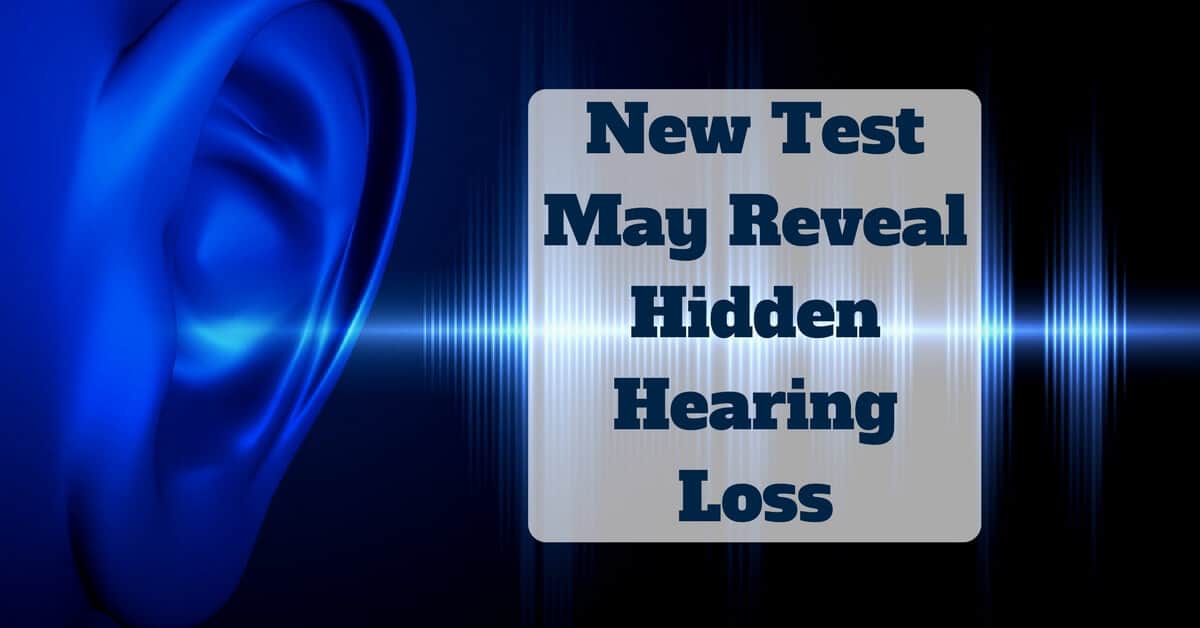
We all know that ringing feeling in the ears after an amazing concert or an intense baseball game. You walk towards your car and all the sounds around you seem muffled for an hour or two. You’ve never been too worried, because your hearing seems normal the next day. Maybe this temporary hearing loss isn’t as temporary as it appears, but is damaging your hearing in ways you can’t see. Many adults have difficulty hearing, but traditional hearing tests don’t reveal any problems. Researchers have been looking at hidden hearing loss, and have recently developed a new test that can detect hearing loss that doesn’t show up after a normal audiogram.
What is Hidden Hearing Loss?
Hidden hearing loss is a type of hearing loss that’s not detectable by common hearing tests. If you thought you weren’t hearing as well as you used to, but went for a hearing test only to be told your hearing is fine, then you might have hidden hearing loss. This is beyond frustrating, since you’re struggling to hear, but haven’t been given a diagnosis or treatment options.
In normal hearing, sounds that enter your ear travel to the inner ear where they cause vibrations in the delicate hair cells. These cells translate the sound waves into neural signals that are sent to the brain by the nerve cells. Normal hearing loss is damage to the hair cells in your ear, and this is tested using an audiometry test, which plays loud and soft sounds at various pitches to determine your range of hearing.
Hidden hearing loss, on the other hand, is the result of damage to the ear’s nerve cells that connect the inner ear to the brain. Damage to the nerve cells makes it difficult to focus on specific sounds in noisy environments, or follow conversations when there’s a lot of background noise. When the nerve cells aren’t functioning properly, fewer signals reach the brain, and the brain has a harder time understanding and interpreting information.
Why isn’t Hidden Hearing Loss Detectable?
Hidden hearing loss is difficult to diagnose, because the person with hidden hearing loss can still hear soft sounds and high pitched sounds, so the results of their hearing test will appear normal. This is why the traditional audiogram shows normal hearing, and those with hidden hearing loss keep struggling to hear.
Diagnosing Hidden Hearing Loss – The New Test
Traditional hearing tests don’t show the whole story when it comes to hearing loss. While we don’t know exactly how many people struggle with hidden hearing loss, it is significantly under-diagnosed. Young people are especially at risk from attending loud concerts and listening to music through headphones and earbuds.
Neuroscientists Constantin Trahiotis and Leslie R. Bernstein have tackled this problem by developing a new way to test for hearing loss. Working in the Psychoacoustics Lab at the University of Connecticut, they can identify hearing loss that gets overlooked in traditional testing.
The new test measures how well you can detect across-ear (binaural) changes in normal volume. Those with hidden hearing loss, who have normal audiogram results, show significant problems in binaural processing, so testing for this will reveal hidden hearing loss. Bernstein is pleased with their progress, since “we now have a validated technique to identify ‘hidden’ hearing deficits that would likely go undetected with traditional audiograms.” Deficiencies in the binaural system means you’ll have difficulties localizing sounds, understanding speech in noise, and separating important sounds from unimportant ones, all the symptoms of hidden hearing loss.
Treatment for Hidden Hearing Loss
Hearing loss from exposure to excessive noise affects millions of Americans, and it’s possible hearing loss is a lot more widespread than we thought. Many adults have difficulties hearing in everyday situations, but traditional hearing tests tell them nothing is wrong. This new binaural testing will reveal who has hidden hearing loss, help with assessment of hearing range, and allow those with hidden hearing loss seek early treatment rather than struggling with hearing loss alone. This test is not immediately available, but we do provide comprehensive hearing tests at My Hearing Centers.
If you think you have a hearing loss, visit us today for a hearing test to assess your hearing in quiet and in noise. We’ll help you figure out what kind of hearing loss you’re struggling with, and find the best treatment options to suit your needs.
My Hearing Centers
With 50 locations across 9 states, there is sure to be a center near you. Reach out to our friendly team today.
